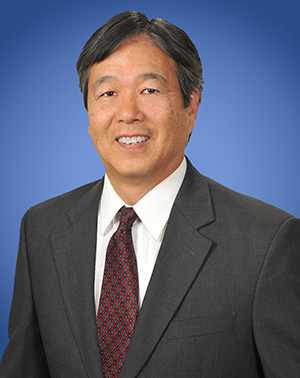
Mark K. Kitabayashi
Partner | Los Angeles, Monterey
mkitabayashi@lozanosmith.com
Tel: 213.929.1066
Fax: 213.929.1077
Vcard |
Bio
Overview
Mark K. Kitabayashi is the Managing Partner of Lozano Smith's Los Angeles office. He is a trial attorney with more than 30 years of litigation experience representing state and local agencies, predominantly in the areas of employment discrimination law, Constitutional disputes, local government issues, labor and employment, contracts, business, and construction matters. Mr. Kitabayashi also handles employment/personnel cases, including employee disciplinary hearings, grievances, EEOC/DFEH Complaints, and appeals. He has also engaged in hundreds of mediations and arbitrations, successfully resolving matters before they result in protracted and expensive litigation.Presenter Experience
Mr. Kitabayashi has taught several seminars to attorneys and clients on the following topics: How to Take and Defend Depositions; How to Take and Defend Expert Depositions; Overview of Discovery Practices and Strategy in Civil Litigation; Preparing for and Handling Arbitrations; Proper Billing Practices for Attorneys; and Monitoring and Controlling Outside Counsel's Billing Practices.Education
Mr. Kitabayashi received his J.D. from the University of Southern California in 1986. He was admitted to the California State Bar that same year. He earned a B.A. from the University of California, Los Angeles, in 1983.Admissions
He is admitted to practice before the U.S. Court of Appeals and the U.S. District Court, Eastern and Central Districts.- Avila v. City of Los Angeles. Plaintiff police officer claimed he was subject to a Board of Rights proceeding and subsequently terminated in retaliation for testifying against the LAPD in a Fair Labor Standards Act wage and hour violations lawsuit filed against the City of Los Angeles. Despite facing counsel who had obtained over $4.5 million against the City in a very similar companion case tried the year before, the jury returned a verdict in favor of the individual defendant and against the City for only $50,000, or 1% of the demand.
- Sequoia v. County of Fresno. The County sought to challenge a thirty year old injunction compelling it to expend approximately $21 million per year to provide health services to a segment of its population. The County's motion to dissolve the injunction was granted and the obligation extinguished.
- Newman v. Stringfellow. At the time, the largest toxic tort personal injury case in U.S. history. Claim of personal injury and property damage by approximately 3,800 plaintiffs due to claimed exposure to a "toxic soup" of materials that emanated from the Stringfellow waste facility. Plaintiffs' verdict against the client was less than $160,000.00.
- Shiell v. County of L.A. Equal protection action claiming staff members of a non-profit, public benefit corporation were entitled to the same rights, salaries and benefits of County employees because they performed the same work. A dispositive motion was brought on 3 issues: 1) statute of limitations; 2) entitlement to civil service; and 3) entitlement to County retirement benefits. The motion was decided in the County's favor.
- Hall v. County of L.A. Approximately 200 female attorneys of a non-profit, public benefit corporation brought a sex discrimination suit claiming they were not receiving the same salaries and benefits as male employees of the County, even though they were doing the same work. The County brought a dispositive motion on the grounds that plaintiffs were using improper male comparators and had not shown any indicia of discrimination. The motion was granted in the County's favor.
- Ashford v. Visalia Unified School District. Plaintiff, on behalf of himself and a class of all similarly situated employees, sued the District and sought the payment of all alleged unpaid vacation benefits covering the entire period of the employees’ employment with the District, which dated back years. Following an extensive meet and confer process regarding the merits and viability of such claims, plaintiffs’ counsel voluntarily dismissed the lawsuit without receiving any relief, thereby extricating the District from the lawsuit in its early stages and saving the client substantial fees and costs.

